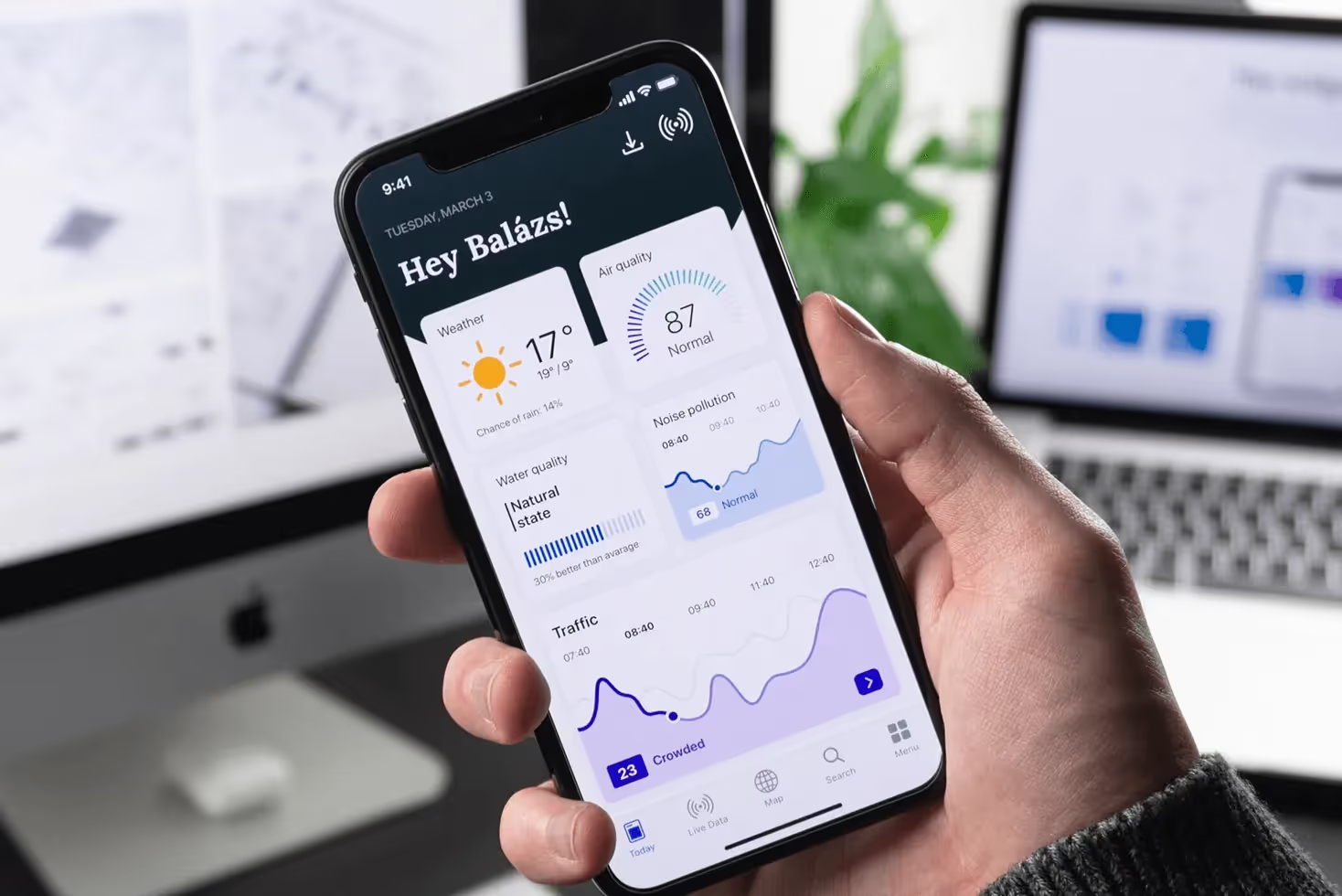May 1, 2025
min READ
Web App vs Mobile App Development: What are the Key Differences?

We hear you – you’ve got a great idea for an app. Step one: check!
But should it live on a mobile device or online? This is where the world of app development, and businesses' understanding of app development, gets a little murky.
At Tappable, the first thing we ask to help clients determine whether they want a web app or a mobile app, is who the target user is. What is that target user trying to do, and where will they be when they access the app?
So many of the differences between web and mobile apps lie in accessibility and the overall user experience.
Different Programs
The first difference between the two styles of app is the programming language used to bring them to life.
Mobile apps connect with web applications from a backend perspective – but when it comes to the user interface and outward design that people see, the skills required to create these apps differ.
Cost vs Accessibility
You can’t go far wrong with a web application.
However, if it’s access on-the-go and a user friendly platform you’re after, then you’d be better opting for a mobile app.
This is where that question of who, why, and where becomes important.
A web app is more affordable to design, but it becomes cumbersome when you compare the access journey to that of a native app on your device. When you click on a mobile app button, you are immediately in the right place – when you have to open a browser and search for a web app, the whole process becomes longer and more complex.
What’s more, when a user has to open a browser and search for a web app, they are more likely to become distracted by something else. Or a lack of connectivity at that moment could halt their experience completely.
There are so many more obstacles in the way of a smooth user experience when accessing a web app.
In comparison, the journey to open and start using a mobile app requires a simple click on a recognisable icon.
Offline Mode
Something touched on in the previous section, but which deserves a sentence or two of its own, is offline mode.
Web apps cannot be accessed without the internet or some form of connectivity. Whereas mobile apps can be designed with a degree of offline mode, which makes some pages and content accessible without an internet connection.
Integrations and Features
One area where mobile apps really shine is in the ability to integrate advanced features, such as AI. Unlike web apps, which are often limited in terms of accessing native device capabilities, mobile apps can leverage AI to enhance user experiences, from predictive text to personalised journeys. AI has already become a critical component in mobile development, helping businesses improve performance and deliver smarter features. The impact of AI on mobile app development is shaping the future of apps, and it’s something businesses should consider when deciding between mobile and web app development.
Another difference between mobile and web apps is the ability to integrate features and tools within the build of the app.
By way of an example, web apps are much harder to connect with a device camera, where mobile devices seamlessly link to the mobile camera at the click of a button. GPS is also more accessible via a mobile app than it is using a web app, which can make location-based predictions more challenging when browsing online.
And let’s not forget the impact of device settings when accessing a web app as opposed to a mobile app. If, for example, a user wants to access a web app via a public computer they may find permissions blocked – whereas browsing on their own mobile device means they are subject only to their own chosen settings.
Which Type of App Should You Choose?
In the simplest possible terms, it depends on the app you are building, how and when you want it to be accessed and used, and who the end user is.
At Tappable, a big part of the design and development process involves choosing the right style of app to support and complement your business. That means brainstorming the user journey from discovery through to engagement with the business, identifying the need for native features as well as potential offline browsing and more.
The differences between mobile and web applications span performance, user experience, accessibility, and of course the platform used to build the app. Our aim is always to work with you, designing a solution rather than just selling a package deal.
The best place to start, if you can’t decide which style of app to commit to, is with your own research. Take some time using both mobile and web apps across competitors and other industries, and see which experiences resonate with and excite you. Bring this feedback to us, and let us start building your bespoke solution from there.